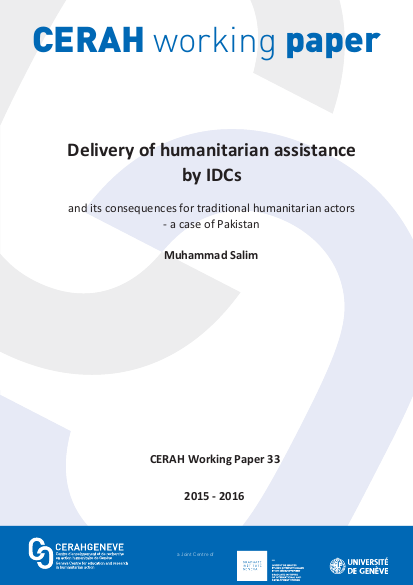
Owing largely to the multiplicity of actors resulting mainly from unprecedented exponential growth of humanitarian activity in the recent past, IDCs are among the emergent players on aidscape. Though the humanitarian flagship reports, clubbing funding to traditional actors and IDCs under the same category of „humanitarian assistance?, can be misleading on their exact share, yet the analysis on financial data of individual donors indicated that a good chunk is channeled through IDCs. The upwards trends concerning the role of IDCs can largely be attributed to the contracting out policies of major donors, revolving door policy among IDCs and major donors, their possibility to socialize with donors as well as evidence supporting that the IDCs have even funded political campaigns in some donor countries. Drawing on the fact that these IDCs are profit driven and may even work towards the achievement of certain political goals of donor countries, their ability to generate resources is termed as a trade-off between „generating additional resources? and „respecting humanitarian principles?. This certainly has negative consequences for traditional humanitarian actors as the growing influence of IDCs is causing issues of competition for resources, coordination at operational level and posing challenges to traditional actors in maintaining their humanitarian capacity.